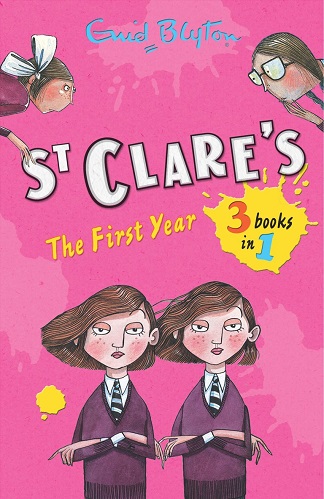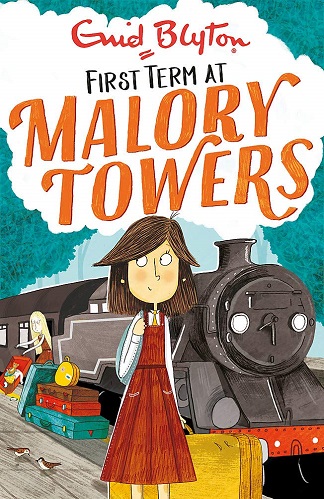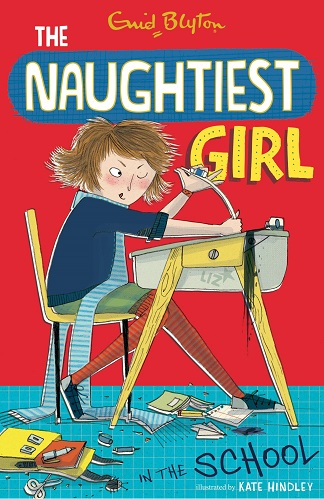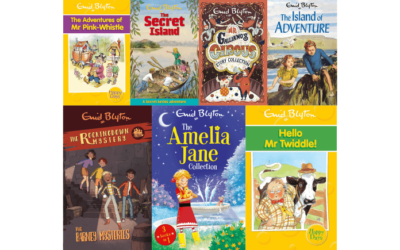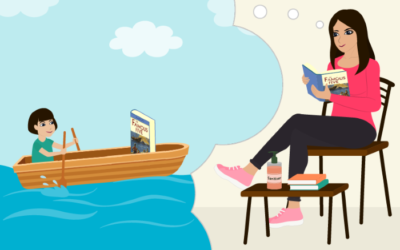Essay
Why ‘The Naughtiest Girl’ Is My Favourite Enid Blyton Book
I have always associated Enid Blyton with comfort reading. So, it was no surprise that I kept turning to her books during the extended lockdown. And while I love all of her books, Blyton’s school stories are the ones I keep returning to.
Though The Naughtiest Girl series was the first set of school stories written and published by Blyton, it shared similar character tropes and plot points with Blyton’s other two school series – St. Clare’s and Malory Towers. All three had an intelligent student with a don’t-care attitude, a musical genius, students studying similar subjects and engaging in similar extracurriculars. There were even similarities in the problems faced by the students in the different series. For example, Sally, one of the characters in Malory Towers, spends the first term worried that her mother doesn’t love her, much like Joan in The Naughtiest Girl.
And yet, I found myself drawn deeper into the world of The Naughtiest Girl – of Whyteleafe and the protagonist Elizabeth Allen. It was only during my recent umpteenth reread that I realised why my fascination for Elizabeth and Whyteleafe still continues.

What Makes Elizabeth Allen Different
The Naughtiest Girl series starts off with Elizabeth being told that she’s being sent to boarding school. Unhappy with this news, she vows to be naughty and get sent home as soon as possible. While the premise of the series resembles St. Clare’s, I find the difference to lie in Elizabeth’s inability to prevent herself from getting into trouble, despite her good intentions. Even her attempt at catching a thief singlehandedly go haywire when she manages to accuse the wrong person, and instead gets punished for being impulsive and for accusing someone without evidence.
Yes, there are traits that Elizabeth shares with characters from Malory Towers and St. Clare’s. Her manner of playing practical jokes is reminiscent of the ones played by Janet (from St. Clare’s) and Alicia (from Malory Towers), her hot-headed nature reminds me of Darrell, and her obstinacy is on the same level as the O’Sullivan twins. And yet, Elizabeth stands out as a more vibrant character for me. Her hot-headed and kind-hearted nature is balanced by a clever mind, which I find more interesting than any of the other characters created by Blyton.
I think my fascination for Elizabeth is mostly because the books didn’t try to moralise her naughtiness. Blyton uses Elizabeth to explore the idea that you could be naughty and kind, hot-headed and brave, troublesome and clever. It didn’t need to be an either-or situation – you could be both, and still be appreciated.
I don’t know if I valued courage, or intelligence, or curiosity as a child, but I definitely value them now. As a teacher, I’ve learnt that there is great joy in teaching children with curious minds since their questions force me to think beyond what’s written on the page. Unsurprisingly, it is these curious children who remind me of Elizabeth – the ones that drive me mad in the classroom but are also the ones I secretly like the most.
Whyteleafe: A Co-Ed School
Another reason why The Naughtiest Girl series stands out for me is the way the school, Whyteleafe, is structured. This is the only co-ed school in Blyton’s universe. You see boys and girls studying and playing sports together, participating in the student government and performing musical duets together – a stark departure from the worlds of St. Clare’s and Malory Towers, where the girls have almost no interaction with members of the opposite gender.
There are some instances of students at Whyteleafe, who look down on the other gender, most notably, Patrick, who joins the story in Here’s The Naughtiest Girl. He even tells Elizabeth, who is his monitor, that he won’t take orders from a girl. Similarly, Richard, a musical prodigy, is dismayed when he has to perform his duets with a younger girl. However, they begin to appreciate their peers once they get to know them, with Richard becoming one of Elizabeth’s closest friends. This is a good lesson to learn at 12 since it makes children aware, tolerant and empathetic at an early age.
As someone who went to an all-girls school, and had no close male friends or cousins while growing up, the idea of a co-ed school appealed to me, primarily because I wanted the comfort of interacting with boys without feeling out-of-place. I thought it would be interesting to see how boys and girls react to each other if they formed close friendships at a young age. I used to see this happening in the co-ed school I used to teach at. The students were aware of each other’s lives and problems, and were, in their own ways, learning to be empathetic to the other gender, much like Richard and Patrick.
Student Governance In Whyteleafe
But it was the student government body of Whyteleafe that entranced me the most. The kind of independence given to the students was amazing to read about – the students got to vote for their representatives who’d then take all kinds of decisions together. While teachers were present during the meetings, the proceedings were left to the students, with the former only stepping in for matters beyond the scope of the students. Even when a student got caught cheating and was assigned extra time with his teacher, the report of his progress got sent to the Head Boy who then read it out to the whole school.
While Malory Towers and St. Clare’s both had form heads, the students weren’t given this kind of independence. The heads were chosen by the teachers, who were also the final authority on all matters. Punishments were usually quiet, and a lot of emphasis was placed on not telling anyone what had happened as long as reparations were made, and change was seen. This was unlike Whyteleafe where students discussed each issue collectively, and were encouraged to own up to their mistakes, even if it took them a while to gather the courage to do so.
I find this to be an interesting way of making children more accountable to themselves, to their peers and to their school. They are less likely to break the school’s rules since they’ve had a hand in making them. Similarly, they are more likely to listen to, and respect their monitors since they’ve elected them. Blyton addresses this in the Second Form At Malory Towers, when Sally is chosen as form head. Alicia is extremely jealous and constantly undermines Sally’s authority. A similar incident is repeated in the fifth Malory Towers’ book where none of the girls respect Moira, the form head, which, in turn, leads to several clashes.
These issues simply don’t turn up in Whyteleafe. The children respect their monitors and make it a point to go to them for help and advice. In The Naughtiest Girl Is A Monitor, Rosemary, a student, goes to Elizabeth, the monitor, when she loses her money, while another student, Kathleen, makes it a point to inform Arabella, a new student, that she has to respect the monitors since they were chosen because the others liked and admired them. This level of accountability also makes the students more independent, responsible, kind, and better at solving problems.
I would eagerly look forward to voting for the prefects as a student. My school was a small microcosm of democracy, but it still felt empowering. Deciding whom to vote for and why are important questions that need to be asked and thought over in a democracy. It is never too early to have this conversation with children in order to prepare them to be responsible and conscious citizens, and I love how Blyton creates a mini democracy within Whyteleafe.
Good books throw up new meanings and perspectives with every reread, and that’s precisely what happened for me with The Naughtiest Girl.
When I read the books today, I wish I’d known earlier that it was okay to make mistakes and that you could be naughty and still be loved. That’s a powerful lesson for me – both as a child and as an adult, and it is one that I need to remind myself of more often than I’d like. And I’m glad Elizabeth’s there to remind me during the times I forget.

Shreemayee likes to believe she's a writer, a stand-up comedian, and also a sensible adult. She co-founded, and organises comedy shows, under The Grin Revolution. She has a degree in English Literature, and bookshelves to prove it as well. Her writing has appeared in publications like Firstpost and The Telegraph. She has a lot to say about books but can't seem to write any. You can find her on Instagram and Twitter.
You can read her articles here.



